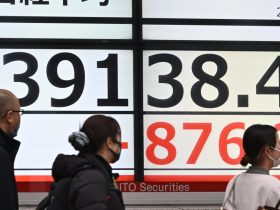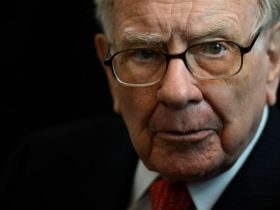Key News
Powell’s “higher for longer” press conference indicating one more rate hike in 2023 pounded Asian equities overnight, sending the US dollar higher.
The Asia Dollar Index is close to both its 1-year and all-time low over the last 17 years as the US 10-year Treasury yield closes in on 4.45%, which was last seen back in November 2007. Mainland China and Hong Kong were both off on light volumes as declining stocks outpaced advancing stocks significantly. Mainland investors bought the dip in Hong Kong again to the tune of $414 million worth of stocks and ETFs.
Policy support continues as the city of Chongqing, one of only two cities with a property tax, eliminated the 0.5% property tax, and Shenzhen and Guangzhou adjusted housing purchase restrictions.
Hong Kong shorts pressed their bets as 21% of turnover was short turnover. Reuters noted that the China Securities Regulatory Commission (CSRC), China’s SEC, is investigating short selling by domestic quantitative hedge funds. Foreign investors were net sellers of Mainland stocks via Northbound Stock Connect, sending popular growth stocks such as Kweichow Moutai, CATL, and BYD lower. The Mainland’s most heavily traded stocks by value is evolving as foreign ownership stakes are trimmed. Shanghai, Shenzhen, and Hong Kong are back at their August lows, which should put the stocks on investors’ radars.
Previously, we have noted the overweight to US equities in conversations with global institutional investors due to the outperformance of US equities versus non-US equities over the last fourteen years. Harry Markowitz, the Nobel prize-winning economist famous for his modern portfolio theory, i.e. diversified asset allocation, passed away earlier this year, though, for many investors, diversification died a long time ago. I believe US stocks are the most crowded trade amongst global investors. Yesterday, it was reported that only one actively managed mutual fund beat the Nasdaq 100 over the last 5, 10, and 15 years. ONE
ONE
The Hang Seng and Hang Seng Tech indexes fell -1.29% and -1.85%, respectively, on volume that increased +8.6% from yesterday, which is 67% of the 1-year average. 92 stocks advanced, while 398 declined. Main Board short turnover increased by +10%, which is 84% of the 1-year average, as 21% of turnover was short turnover. The value factor and large caps “outperformed”/fell less than the growth factor and small caps. All sectors were down, as healthcare fell -2.79%, materials fell -2.18%, and communication services fell -1.89%. Telecommunication was the only positive subsector, while pharmaceuticals, household products, and retailers were the among worst-performing. Southbound Stock Connect volumes were light/moderate as Mainland investors bought a net $414 million worth of Hong Kong-listed stocks and ETFs. China Mobile was a large net buy and Ping An was a small net buy. Meanwhile, Meituan, Tencent, Li Ning, and Kuiashou were all small net sells.
Shanghai, Shenzhen, and the STAR Board fell -0.77%, -0.83%, and -0.65%, respectively, on volume that increased +1.18% from yesterday, which is 66% of the 1-year average. 1,072 stocks advanced, while 3,705 declined. The value factor and small caps “outperformed” (i.e. fell less) than the growth factor and large caps. All sectors were down as consumer staples fell -1.77%, consumer discretionary fell -1.44%, and health care fell -1.36%. The top-performing subsectors were marine, forest, and communication equipment. Meanwhile, restaurants, agriculture, and motorcycles were among the worst-performing. Northbound Stock Connect volumes were light as foreign investors sold a net -$592 million worth of Mainland stocks as Midea and Wuxi AppTec were small net buys. Meanwhile, Kweichow Moutai, CATL, and Ping An Insurance were moderate/large net sells. CNY and the Asia Dollar Index fell on the stronger US dollar as Treasury bonds rallied. Copper and steel fell.
Last Night’s Performance
Last Night’s Exchange Rates, Prices, & Yields
- CNY per USD 7.30 versus 7.29 yesterday
- CNY per EUR 7.78 versus 7.81 yesterday
- Yield on 10-Year Government Bond 2.65% versus 2.66% yesterday
- Yield on 10-Year China Development Bank Bond 2.73% versus 2.74% yesterday
- Copper Price -0.09%
- Steel Price -1.07%
Read the full article here













Leave a Reply